




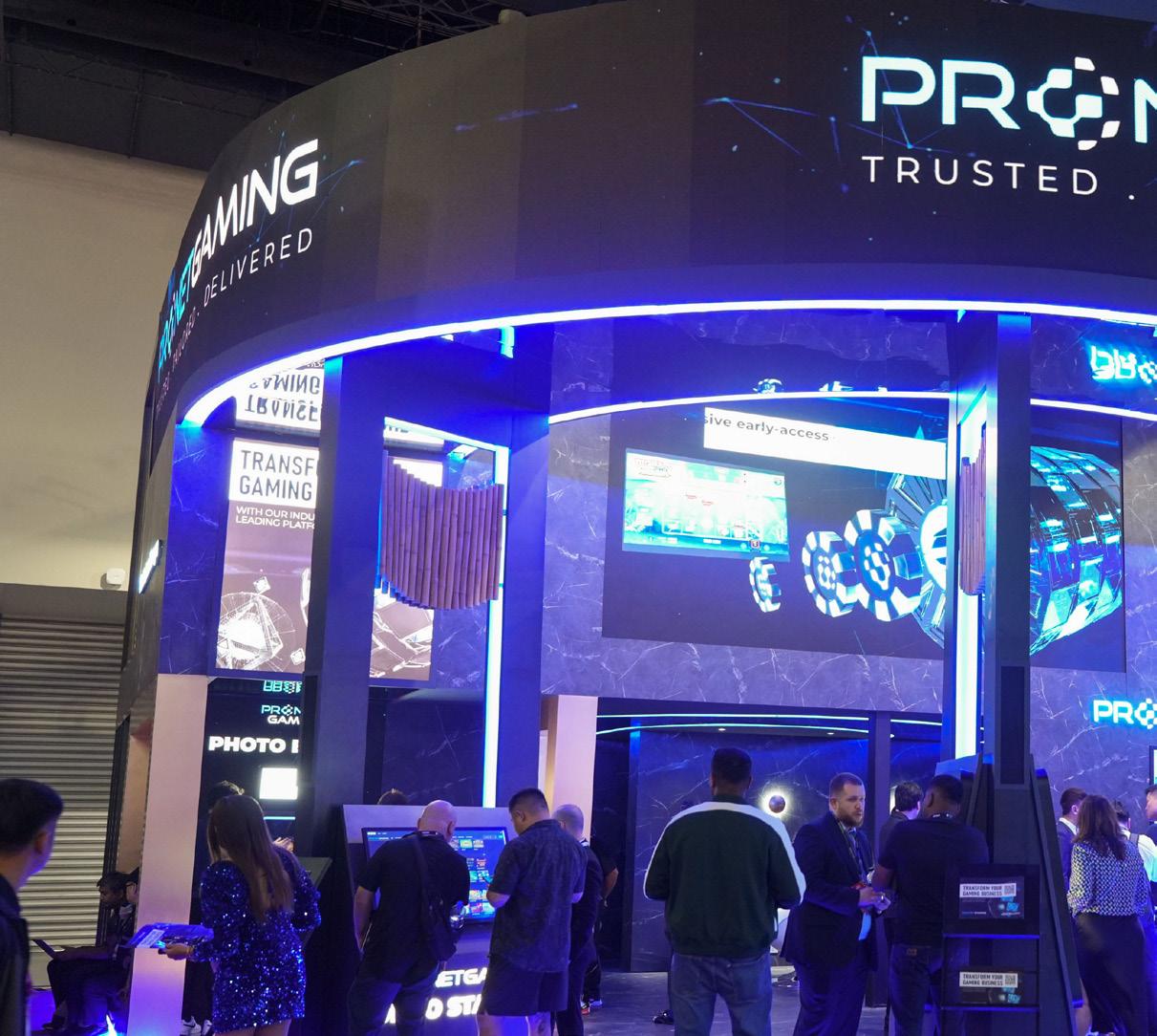


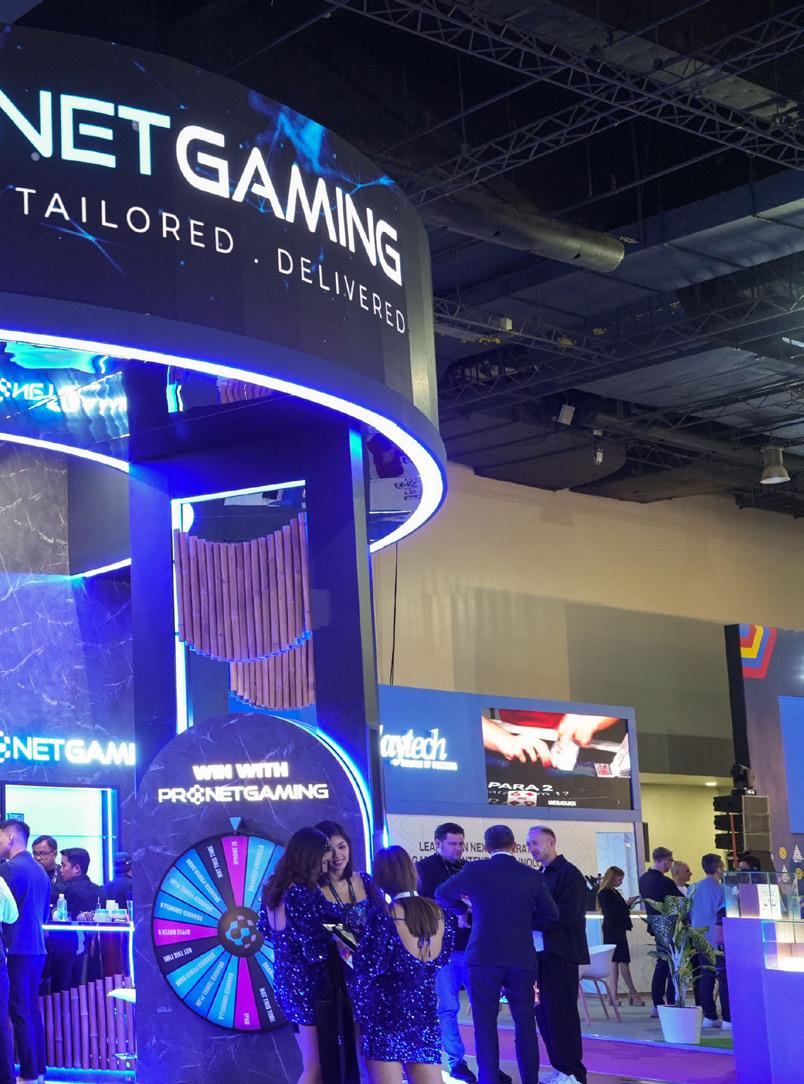











Lana Thompson - Editor
Welcome to the latest edition of the Infinity Gaming Magazine and and Autumn is here, that means it’s time to get your nominations in for the 2026 International Gaming Awards (IGA). After so many requests we have extended the nominations till the 28th October. I am told we are set to break our record of entries to almost 900 this year.
Now in its 19th year the IGA is such a special evening, it is the awards event of the year and cannot wait to welcome you all to the Intercontinental Hotel in Barcelona for what will be the best ever.
As always free to enter and have the chance of winning one of the most coveted awards within the industry, so pop over to the gaming-awards.com website to see all the categories you can enter.
As ever we cannot do what we do without the support of our wonderful sponsors; Betconstruct, Digitain, 1xBet, Alea, Spribe, Pilot Games, Gamomat, Vid-
eoslots, IGT, Light &Wonder, Delasport and BGaming.
Inside the magazine we introduce you to the stellar line-up of judges that have given their time to this charity event, we are so grateful to them for supporting us this time.
2026 will also welcome back the London Gaming Congress (LGC) now in its second year and with the huge impact the event had in March the next edition is going to be massive and we already have speakers lining up and sponsors confirming for the 18th March date held again at the stunning iconic Savoy Hotel.
Thank you Continent8 and IGT for being the first two confirmed sponsors.
If you are interested in taking part as a speaker or sponsor please do contact the team.
Now to the magazine and we have some superb articles and news as ever, so I will not keep you from reading the latest edition.
Enjoy the latest edition of the magazine and until next time, when we announce all the finalists.
“To Infinity and Beyond!”
Regards, Lana
The Editor & Chief
CONTACT US
Clever Duck Media Centrix@Keys
Keys Park Road
Staffordshire WS12 2HA UK
PRODUCTION
Clever Duck Media Centrix@Keys
Keys Park Road
Staffordshire WS12 2HA UK
PUBLISHING
Infinity Gaming Magazine is operated by © Clever Duck Media Ltd ® Company Reg. No. 687 1018 (Registered in England) V.A.T reg. no 972 6372 91
Sponsorship Opportunities Colin@cleverduckmedia.com
Business Partnerships Svetlana@gaming-awards.com
Marketing & Advertising Maria@cleverduckmedia.com
Editorial Content & PR media@cleverduckmedia.com






Meet the Industry professionals charged with judging the nominations for the 2026 International Gaming Awards
So in no particular order:







Mattias Wedar CEO LeoVegas Group



Simon Westbury Strategic Advisor 1xBet

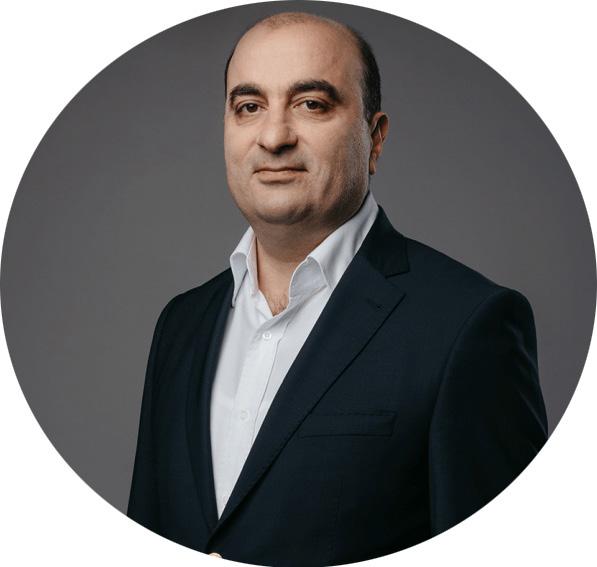

Paul Dolman-Darrall CEO g.games





Fiona






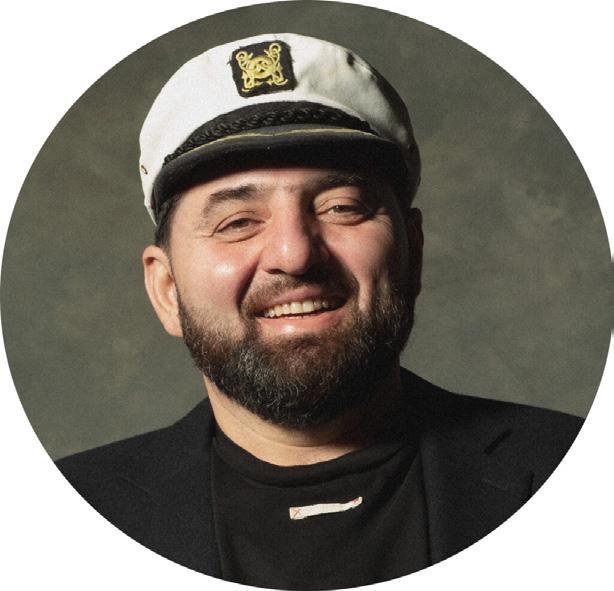













There still remains a few days to get your nominations in, the deadline is the 28th October so DO NOT delay and go to www.gaming-awards.com. Always free to enter this charity focused event.












MGM Resorts has decided to withdraw its application for a casino licence in New York City, specifically for the Empire City Casino project in Yonkers. The decision comes on the very day that tax rate submissions were due, leaving only three contenders in the race for the coveted casino licences.
MGM Resorts cited “newly issued guidance” regarding the licensing terms as a significant factor in their decision to step back. The company had initially planned a substantial investment of $2.3 billion to transform Empire City Casino into a fully operational casino and entertainment venue. However, the recent changes indicated that the company would only qualify for a 15-year commercial casino licence instead of the anticipated 30-year licence.
The shift in licensing expectations has altered the financial landscape for MGM. The company expressed that the revised competitive environment, with multiple proposals concentrated in a small area, has diminished the anticipated returns from the project. In a statement, MGM
noted:
“The newly defined competitive landscape…challenges the returns we initially anticipated from this project.”
This withdrawal not only impacts MGM’s plans but also raises questions about the future of the existing gaming complex, which currently generates significant tax revenue for Yonkers.
MGM’s proposal had garnered considerable support within the Yonkers community, receiving a unanimous vote from a local advisory committee to advance to the tax submission stage. The project was expected to create thousands of jobs and inject $100 million into local infrastructure improvements. The community had high hopes that the expansion would bolster the local economy.
However, with MGM’s exit, concerns have arisen about the potential for the existing Empire City Casino to remain viable amidst increasing competition from other casinos. The facility currently contributes approximately $30 million annually in tax revenue to the city, and its future now
appears uncertain.
Local officials and community members expressed disappointment at MGM’s decision. Many had viewed the expansion as a vital opportunity for economic growth and job creation. The advisory committee had initially supported the proposal partly due to fears that the emergence of other casinos could jeopardise the future of Empire City.
With MGM’s withdrawal, the competition for New York City’s casino licences has narrowed to three remaining proposals: Resorts World, Metropolitan Park, and Bally’s Bronx. These contenders will now proceed to the next stage of the selection process.
The New York Gaming Commission is expected to announce the awarded licences by early December, allowing the selected projects to move forward with their plans, potentially commencing operations in 2026.
By David Artus, Senior Account Manager at Domicilium

AI powered IT support solutions can save a massive amount of time and solve lots of routine issues faced by iGaming operators, but there are still some scenarios where only advice from a human expert will do.
At Domicilium, we fully understand the benefits artificial intelligence can provide because we already use and supply AI and machine learning platforms to empower our customers with cutting-edge hosting solutions, so we fully support and embrace the move to harness its potential. It’s also
an excellent tool to improve efficiency, drive down costs, and provide new and better user experiences for gaming customers. Domicilium has been providing AI platforms to the gaming community for many years. Typically our customers use these for things such as generative content, procedural world building, testing and QA automation, optimisation, anti-cheat, forecasting and modelling.
As you can see we have a very positive attitude towards AI, but there is a downside to how it is being used in some sections of the iGaming IT
provider industry. This is because in the race to reduce costs and standardise services, many IT providers have stripped away the human element that once defined customer relationships. Support is increasingly routed through ticketing systems and faceless portals, while some questions are met with vague, templated answers. In this context, more and more gaming operators find themselves navigating a minefield of automation, obfuscation, and uncertainty when they have a problem.
In our experience at Domicilium, which spans 30 years dating back to the gam -

-ing industry’s pioneering days, having a hosting provider that has human IT professionals who you can actually talk to whenever its necessary has always had tremendous value from our clients’ point of view. Today, even in an AI powered world, it has more value than ever.
At the lowest level the increased use of automation for IT support may just be frustrating when you can’t get the answer you need. But at the other end of the scale it’s a much bigger issue. Of course, the sophistication and level of reliability of automated solutions is increasing all the time, but we’re not yet in a world where any IT provider can guarantee 100% reliability 24/7/365. In a sector where minutes of downtime can equate to millions in lost revenues and reputational damage, this means that when there is a problem, waiting in an automated queue to get the answer you need is not an option. In this context, there is a paradox emerging. For operators
that rely on providers which don’t offer easy to access support from human intelligence, the more often they will find themselves trapped in cycles of impersonal support, logging into dashboards, raising tickets etc. Wasting valuable time waiting for responses that may or may not address the fundamental cause of the issues they’re experiencing is a common occurrence for some iGaming business managers.
The underlying theme that runs through these challenges is not technology itself but the absence of a human connection.
Technology will always be central to iGaming, but when it comes to critical hosting and cloud decisions, what operators need most is the reassurance that comes from human expertise, proactive support, and personal accountability. For example, let’s consider the difference between these two experiences:
*You discover latency issues during a major tournament. You raise a ticket with your cloud provider and wait for an automated response, hoping the issue is escalated quickly enough to prevent losses.
*You discover latency issues and immediately call your account manager, who knows your setup, understands the stakes, and gets the right engineer on the problem within minutes.
Both scenarios involve technology, but only one involves partnership. This human factor, the ability to speak to someone who knows your business inside out and is accountable for its continuity, is increasingly rare in a market dominated by automation, standardisation and off the shelf support packages.
AI is also now commonly being used to provide answers to all manner of business problems. It’s great as a tool to offer an alternative point of view to feed into a decision-making







that final decision is another example of why that personal, human partnership is so important.
The success of the iGaming industry is based on the strength of these partnerships. In the early 1990s, some of the first online sports platforms and casinos were built with modest infrastructure in comparison to today, plus close collaboration between operators and their hosting providers. At Domicilium we know this to be true, because we were there! We designed, built, and maintained one the first online sports platforms in the world, closely followed by some of the first online casinos.
The achievements by us and others in back in the day were based on strong partnerships, and it laid the foundations for the industry today. iGaming today is on a vastly bigger scale, but in terms of partnerships what worked then still works now. Technology alone is not enough. Trust, continuity, and personal accountability remain cornerstones of success. The most forward-thinking providers understand this and are in the best position to meet its future challenges.
As iGaming continues to expand across jurisdictions, embrace new technologies, and face ever-tighter regulation, the stakes will only rise. Operators will demand infrastructure that is not only resilient but also transparent, compliant, and adaptable. Above all, they will demand providers that act as true partners. Providers who pick up the phone, answer questions clearly, and take responsibility when it matters most.
In a world of automation, obfuscation, and uncertainty, that level of human connection is no longer just a rare luxury, it is a strategic advantage.

Domicilium’s answer to these challenges is not that we should use less technology, it’s about getting the balance right by using it for what it does best, while also being aware of its limitations. For us, that balance is a hybrid solution where automation is used to empower our customers, and our experienced human team who know the customer, understand the stakes, and can act quickly and decisively to solve problems if they occur.
The iGaming industry has never been more reliant on hosting and cloud infrastructure. But as the sector embraces automation and globalisation, it must not lose sight of the human element that underpins resilience and trust. Operators face a future where compliance requirements will grow more complex, cyber threats will become more sophisticated, and player expectations will drive demands for even higher standards of performance. In that future, the providers who will stand out are not just those with the fastest networks or
the largest datacentres, but those who combine cutting-edge technology with approachability, accountability, and human support. At the end of the day, when millions of players are waiting to place their bets, and regulators are watching closely, it boils down to one crucial question: Who are you going to call when you need to solve a mission critical problem?
David Artus is Senior Account Manager at Domicilium, a world leading, privately owned, cloud, datacentre, and network services provider. Domicilium has over 30 years of experience delivering resilient infrastructure, managed services, and secure connectivity to regulated industries and global enterprises. Today it operates across Europe, the Americas, and Asia, with state-of-the-art datacentres supporting class-leading solutions tailored to meet the needs of the global iGaming sector.


Rhode Island is currently considering changing its online sports betting set up, with the state’s regulators are contemplating the termination of the monopoly held by International Game Technology (IGT) over online sports betting. This possible shift comes as several prominent sportsbook operators have expressed keen interest in entering the market, signalling a significant change in the state’s gambling dynamics.
Rhode Island has been a player in the sports betting arena since 2018, when it became one of the first states to legalise sports wagering following the repeal of the Professional and Amateur Sports Protection Act (PASPA). Currently, IGT operates the online sports betting platform through the Rhode Island Lottery’s Sportsbook RI app, which has been the sole provider since its inception. This exclusive arrangement has drawn criticism from consumers and industry experts alike, who argue that competition could enhance the overall betting experience.
The financial benefits of sports betting for Rhode Island cannot be overlooked. In the last fiscal year, the state generated approximately $14 million in tax revenue from sports betting, which is subject to a hefty 51% tax rate on IGT’s earnings. However, the reliance on a single operator raises concerns about sustainability and growth potential. With the increasing popularity of sports betting across the United States, Rhode Island stands to gain significantly by diversifying its offerings.
In a bid to assess the feasibility of expanding the market, the Rhode Island Department of Revenue Lottery Division issued a Request for Information (RFI) earlier this year. This initiative aimed to gauge interest from various sportsbook operators regarding their potential entry into the Rhode Island market. The response was overwhelmingly positive, with eight operators expressing their desire to participate, including well-known names such as DraftKings, FanDuel, and BetMGM.
The push to dismantle IGT’s monopoly has garnered legislative support. Earlier this year, Senator Frank Ciccone introduced a bill aimed at ending the exclusive contract with IGT. The bill passed the Senate with a resounding 30-3 vote, highlighting the growing consensus among lawmakers regarding the need for a more competitive environment. However, the bill did not progress in the House before the legislative session concluded, leaving the future of sports betting reform in limbo.
Supporters for ending the monopoly argue that introducing multiple operators would not only enhance consumer choice but also improve service quality. With various platforms vying for market share, operators would be incentivised to offer better odds, promotions, and user experiences.
The rise of casual gaming in recent years has been impossible to ignore. Often referred to as crash or instant-win games, these titles have gained widespread popularity due to their mobile-friendly interfaces, social features, and streaming-friendly mechanics. Many studios have tried to enter this space, especially with aviation-themed games. However, with market saturation, most of these titles quickly fade, struggling to achieve sustainable success.
Aviamasters™, released by BGaming in July 2024, stands out as a rare success story. The game has gone viral, but its popularity extends far beyond the initial hype. Over the course of five months, Aviamasters saw a 740% increase in new players, accompanied by consistent week-on-week growth. Its strong traction in social media — with more than 500 million TikTok views and over 200 new daily user-generated videos — demonstrates how the game
has created a self-sustaining engagement loop.
The game’s unique physics-based landing mechanic sets it apart from other aviation-style crash games. Unlike typical “fly as high as possible” titles, players must focus on mastering the landing, introducing a balance of skill, anticipation, and strategy that resonates across casual and more experienced audiences.
One of the defining factors in Aviamasters™’s ongoing success is its organic growth. Affiliates and streamers have significantly contributed to this trajectory, sharing content that fuels player engagement and fosters community-building. The resulting player ecosystem not only drives engagement for Aviamasters™ itself but also benefits BGaming’s broader portfolio, acting as a gateway for new users to explore other games and offerings.


The demand for Aviamasters™ has extended to operator-customized versions of the game. Shuffle launched “Happy Bird,” and Rainbet introduced its own variant of Aviamasters™. Such adaptations illustrate the confidence operators have in the product and its ability to drive player retention and revenue. This level of integration shows that Aviamasters™ is more than a casual viral hit; it has become a critical tool in operators’ content strategies.
At its core, Aviamasters™ is straightforward yet deeply engaging. Each round begins with a takeoff, where the player’s stake equates to the aircraft’s balance. Random rocket
obstacles introduce tension, halving the balance and lowering the flight path. Rounds end only when the aircraft either lands safely on a carrier or falls into the water.
The landing-focused mechanics, combined with the dynamic riskreward system, create intense emotional engagement: each flight evokes suspense, anticipation, and the satisfaction of mastering a successful landing.
Aviamasters™ demonstrates the potential for casual games to not only go viral but also achieve sustainable growth and industry impact. Its popularity has inspired other studios to reconsider the
design of aviation-style games, while operators increasingly rely on datadriven engagement strategies to optimize player retention. The success of Aviamasters™ also highlights the crucial role of influencer and affiliate networks, as well as the importance of creating games that resonate with social platforms.
The game has proven to be more than just a fleeting trend — it has become a benchmark for the casual gaming genre, combining accessible mechanics, social virality, and genuine skill elements. As BGaming continues to innovate, Aviamasters™ offers insights into how creativity, community engagement, and strategic marketing can coalesce to deliver sustained success in a competitive and fast-evolving market.
+15.000 Games in one Integration
Localized content and worldwide presence
Secure and scalable API
+20.000 transactions per second
Your best Business Partner


Alea is at the forefront of iGaming technology, offering seamless, secure, and scalable API standards. Our robust integration process not only meets but exceeds industry standards, ensuring the highest level of security and trust for our partners.


Merkur Casino UK, a subsidiary of the German-based Merkur Group, has acquired Oasis Leisure Group. Founded in 1968 by Gerald Steinberg, Oasis has been a well known brand in the local gaming scene, operating a network of adult gaming centres and supplying various entertainment venues across the region.
Merkur Casino UK is part of the larger Merkur Group, which has a history dating back to 1957. Originally known as Gauselmann Group, the company began by operating jukeboxes and has since evolved into a major player in the gaming industry, with interests spanning casinos, cruise ships, and gaming terminals. The acquisition of Oasis marks Merkur’s first venture into the Northern Irish market.
Founded by Gerald Steinberg, Oasis Leisure Group has built a reputation
for quality and reliability over the decades. With 15 adult gaming centres and a workforce of approximately 150 employees, Oasis has become synonymous with entertainment in Northern Ireland. The company also operates Joyland, a popular amusement venue on Newcastle’s Promenade, and supplies a variety of gaming machines and entertainment equipment to pubs, clubs, and betting shops.
The acquisition has raised questions about the future of Oasis’s employees and the quality of service that customers have come to expect. Merkur’s Chief Operating Officer, Mark Schertle, expressed enthusiasm about integrating Oasis into the Merkur family.
Merkur has assured that it will maintain the high standards that Oasis has established over the years. This commitment is crucial for the approxi -
mately 150 employees who rely on the company for their livelihoods.
For customers, the acquisition promises to bring new and exciting gaming options. Merkur’s extensive experience in the gaming industry could lead to the introduction of innovative gaming technologies and enhanced customer service.
The financial health of Oasis Leisure Group has been robust, with recent reports indicating a pre-tax profit of £3.8 million on a turnover of £13.4 million for the year 2024. This strong performance underscores the viability of the business and its attractiveness to potential investors like Merkur.
Over the past year, Pronet Gaming has been quietly accelerating its evolution – from solid European roots into a flexible and globally ambitious omni-channel turnkey provider. What’s striking is how the company is doing so with both product agility and local sensitivity, especially in Asia. By aligning innovation and regional expansion so tightly, Pronet Gaming offers a useful case study of scaling in competitive parts of the region.
Asia has become a central focus for Pronet Gaming’s growth since 2023. As Alex Leese, CEO of Pronet Gaming once put it, “The biggest mistake we can make is to try to enter Asia with what we think works in all these various jurisdictions.”
Instead, Pronet Gaming has committed to localisation – not just adapting interfaces or languages, but building local teams, understanding regulatory complexity, and tailoring partnerships.
Earlier this year, at SiGMA Asia in Manila, the company’s Business Lounge became a hub for operator feedback and product discussion, where Pronet Gaming emphasised flexible, relevant solutions rather than one-size-fits-all models.
Thus, Pronet Gaming is showing that innovation in iGaming is not only about new features or technologies: it’s about matching those tools to markets and players, respecting local norms, and integrating culture and customer needs at every level.
Over recent shows and product rollouts, Pronet Gaming has placed a strong emphasis on delivering turnkey platform solutions that can scale across multiple regions and jurisdictions. Their product verticals span casino, sportsbook, betting exchange, and omni-channel solutions, offering an award-winning platform that is full turnkey, trusted, and customisable. Consequently, clients are able to inte -
grate features, local content, payment providers, and interfaces that align with target markets.
Some of the key product-and-tech related pillars that Pronet Gaming is leaning into include omni-channel platforms, where their strategy isn’t just about creating new modules but offering a suite of solutions that work across devices and channels, with rapid deployment, local content, and regulatory compliance.
Use of emerging technologies such as crypto-friendly payments and AI are part of the roadmap. Leese has noted a focus on “AI and crypto-based solutions, which are absolutely crucial in this market”, as well as fast adaptation through participation in trade shows where Pronet Gaming has tested products, gathered feedback, and refined offerings where these events have served as both market probes and launchpads.
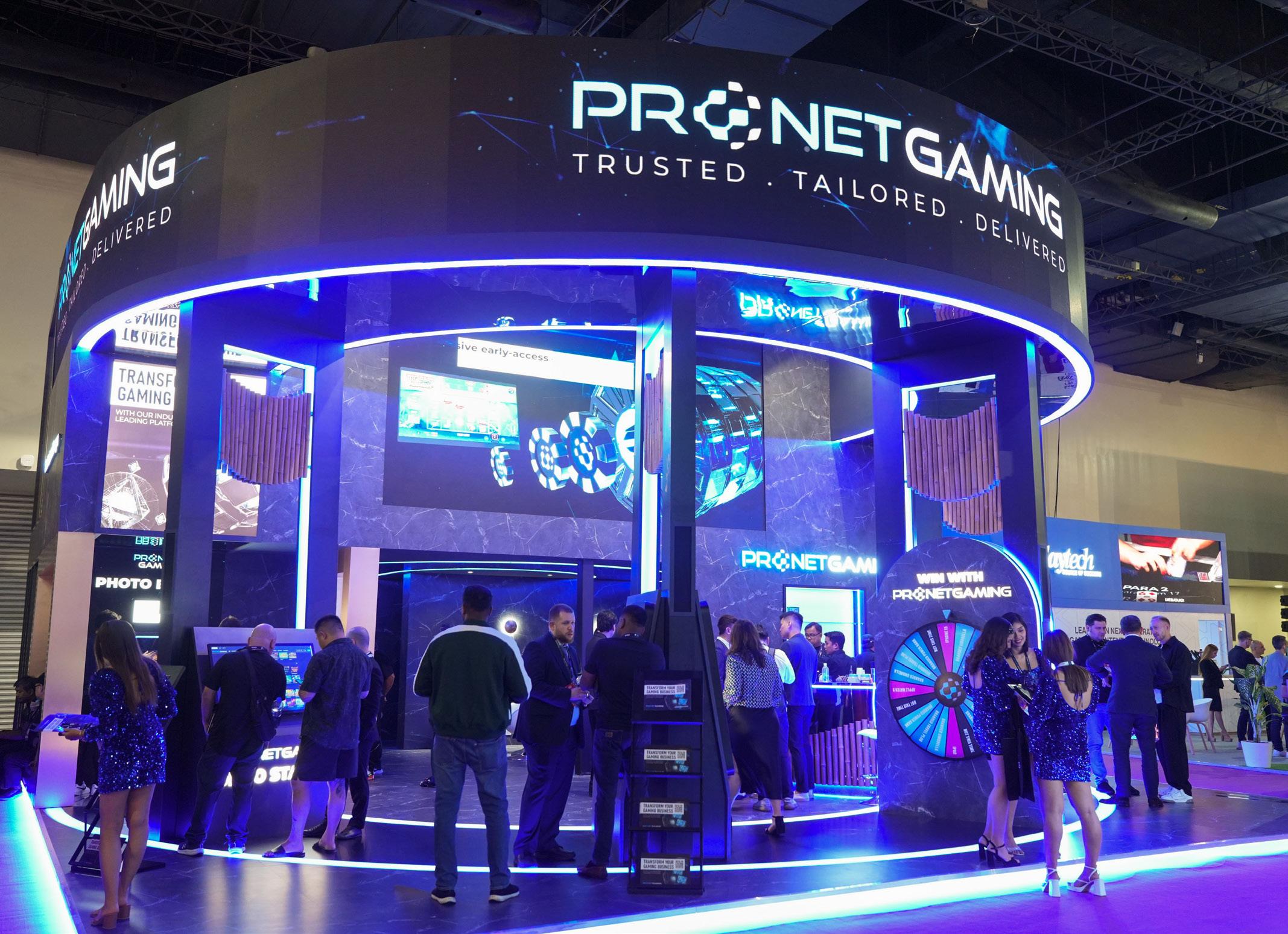
Pronet Gaming’s involvement in major iGaming shows this year like ICE Barcelona, SPiCE, Women in Gaming (WIG) Diversity Awards,SiGMA Asia, iGBL!VE London, andSBC Summit Lisbonhas done more than serve marketing or networking ends. They are central to the company’s strategy of staying attuned to operators’ needs, emerging regulation, and competitive shifts.At SiGMA Asia, Pronet Gaming won the Best Multi-Channel Provider award, highlighting that their cross-platform strength and product integrations are being recognised by peers. These events also allow Pronet Gaming to gauge where demand lies: what kinds of betting markets are expanding, how regulatory regimes are changing, and where localisation will make or break success. Leese has repeatedly emphasised that Pronet
Gaming’s geographic expansion cannot be disconnected from what product people actually want in those regions. “We’ve always been good at localising ourselves, not just the product, but the team behind it. And that’s where the feedback becomes really important.”
What emerges clearly from Pronet Gaming’s recent activity is a set of perspectives on what it takes to grow in the global iGaming landscape. Among the most important are regulatory agility and a focus on both local talent and cultural fit. It is not enough to export European products wholesale; Pronet Gaming sees real value in hiring locally and embedding staff who understand language, culture, and consumer behaviour. This not only improves localisation but also builds trust and speeds up time to market.
The company also recognises technology and user experience as critical differentiators. As many markets mature, basic sportsbook or casino products are no longer sufficient. Features such as fast bet tools, betting exchanges, diverse casino content, multi-language support, mobile-first design, and innovative payment options (including cryptocurrency) are becoming essential. Pronet Gaming has been pushing firmly in these directions.
Finally, partnerships and credibility play a crucial role. Participation in trade shows, direct engagement with operators, and earning awards are more than just exercises in visibility; they are signals of credibility. In crowded markets, demonstrable product quality, compliance, and operator satisfaction are what set providers apart, and Pronet Gaming’s award wins and selective approach to partnerships underscore that


mindset.
What’s next for Pronet Gaming
As the company moves into the latter part of 2025 and beyond, Pronet Gaming is focused on consolidating its strengths while pushing into new frontiers. A central priority is completing the build-out of its Asian operations –hiring more local staff, refining product fit, and scaling operator relationships to ensure long-term relevance in diverse markets.
Alongside this, the company is accelerating feature innovation, with particular emphasis on crypto payments, AI-driven personalisation, and modular platform design. These capabilities allow operators to deploy quickly while adapting to local variations, which is increasingly important in fragmented regulatory environments.
There is also a heightened emphasis on regulatory compliance and responsible
gambling tools. With scrutiny intensifying across many jurisdictions, these elements are not only necessary for compliance but also vital for maintaining trust among operators and players. Continuous product refinement remains another core focus. Industry events are used not just as platforms for showcasing technology but also as opportunities to gather feedback, enabling the company to learn, adapt, and evolve in line with operator and player expectations.
Summing up much of this approach, Leese remarked during SiGMA Asia: “We see Asia as one of the most dynamic and promising markets in global iGaming. Ensuring that we stay innovative and relevant is key. This includes AI and crypto-based solutions, which are absolutely crucial in this market.”
Final thoughts
Pronet Gaming’s story this year is not just about expansion for its own sake,
but about scaling with foresight. Innovation without relevance won’t carry growth; likewise, entering new geographies without localisation or regulatory clarity invites pitfalls. The companyhas beennavigating that balance with an eye on both product breadth and market depth.
For anyone interested in how B2B platform providers can thrive in the global iGaming arena, Pronet Gaming’s evolving playbook – anchored in product launch discipline, event-driven feedback, and deep regional insights – offers valuable lessons. If you’re an operator, investor, or outsider, what Pronet Gaming is doing in Asia now may well be anindicator for where the next wave of industry growth will be.

Kenny Alexander, who led GVC Holdings (now Entain) from 2007 until 2020, appeared at Westminster Magistrates’ Court alongside ten other individuals on Monday. The charges against them include conspiracy to bribe and conspiracy to defraud, specifically concerning gambling services provided in Turkey between 2011 and 2018. The Crown Prosecution Service has authorised the prosecution of these eleven individuals for a total of seven offences, which encompass fraudulent trading, cheating the public revenue, and evasion of income tax, among others.
The allegations stem from activities that allegedly took place during Alexander’s tenure at GVC Holdings. The company, which made headlines for its £4 billion acquisition of Ladbrokes Coral in 2017, is now facing scrutiny over its past operations. The charges suggest a systematic approach to circumventing legal frameworks in Turkey, raising questions about corporate governance and ethical practices within the gambling sector.
During the initial court appearance, none of the defendants were required to enter a plea. They have been granted bail and are scheduled to return to Southwark Crown Court on November 3. The legal proceedings are expected to unfold over several months, with significant implications for all parties involved.
The case against Alexander and his associates has sparked a broader discussion about the regulatory environment surrounding gambling operations, particularly in international markets. As the industry continues to expand globally.
The allegations highlight the challenges faced by gambling operators in navigating complex legal landscapes. Countries like Turkey have strict regulations governing gambling activities, and any perceived violations can lead to severe penalties. This case serves as a reminder for companies to ensure robust compliance frameworks are in place to mitigate
risks associated with international operations.
Public trust in the gambling industry is already fragile, and high-profile cases like this can exacerbate negative perceptions. The potential for reputational damage is significant, as stakeholders—including customers, investors, and regulators—become increasingly wary of the practices employed by gambling operators.
Under Alexander’s leadership, GVC Holdings transformed into a major player in the global gambling market. The acquisition of Ladbrokes Coral was a landmark deal that positioned the company for future growth. Yet, the recent charges raise legal questions about the ethical implications of such rapid expansion and the practices that may have been employed to achieve it.





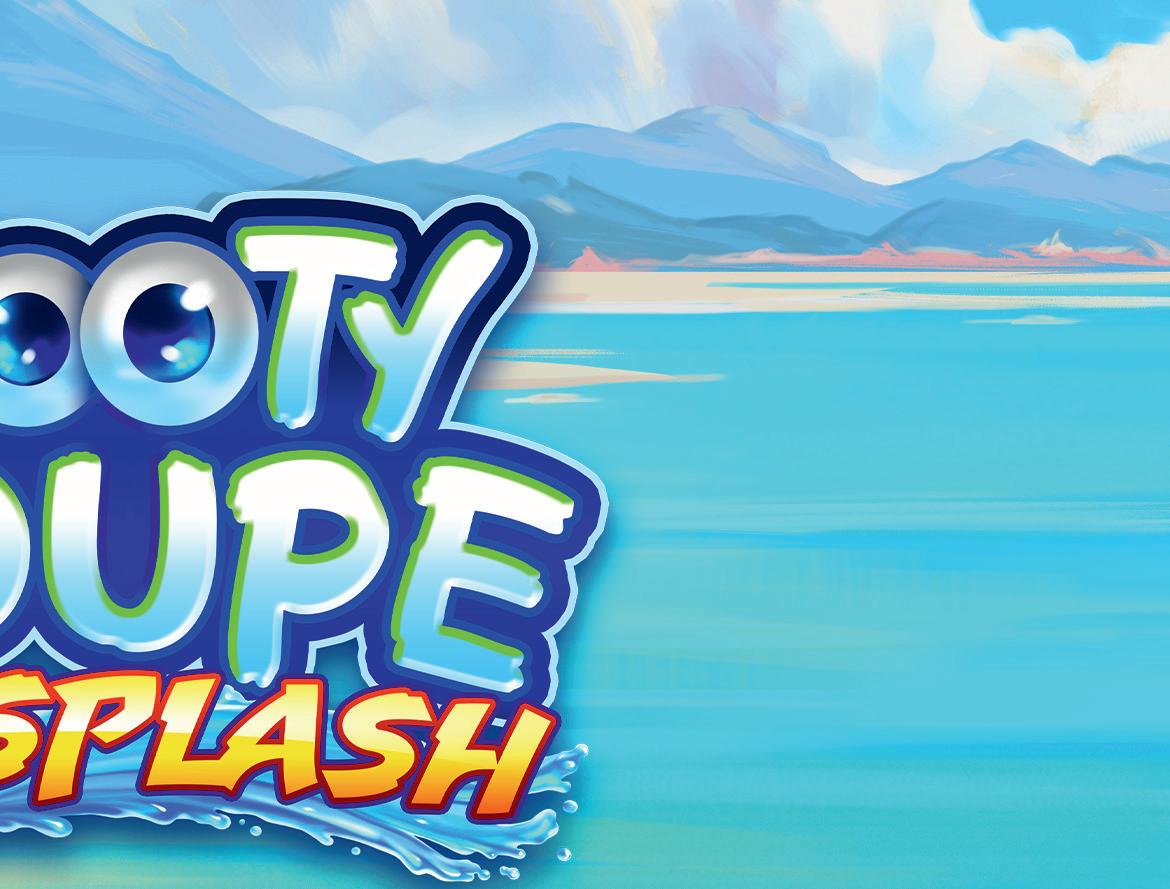



For too long, poker has operated a broken economic machine. It lures recreational players into a high-stakes bloodbath, watch them churn at unsustainable rates, and call it a business model. But as regulators tighten the screws and acquisition costs spiral, this churn-and-burn ecosystem is becoming obsolete. The future of poker isn’t about finding more players to feed the grinder; it’s about building a durable, compliant home for the fans by pivoting to experience-first value.
For decades, the online poker industry has managed its acquisition model like a gladiator’s arena. It spends a fortune marketing the spectacle, enticing a steady stream of new and often naïve players, only to watch them be systemically carved up by a small cadre of full-time, professional “sharks.”
The data is brutal, and it should worry every CEO and CFO: An estimated 85% of newcomers have a brutal, demoralising experience, lose their initial deposit, and leave the ecosystem forever. They take their potential lifetime value
(LTV) with them, leaving the operator with a massive, unrecoverable Customer Acquisition Cost (CAC).
We can mask this brutal reality with industry jargon like “rake” and “liquidity,” but this is a fundamentally extractive, unsustainable approach. It’s an economic model built on the flawed premise that there will always be a fresh, uneducated supply of players to feed the machine. This short-term thinking actively repels the next generation of potential enthusiasts, making the current financial engine utterly untenable.
The walls are definitively closing in, turning what was once a profitability challenge into a major compliance crisis. Across Europe, North America and the UK, and in every newly regulating market, governments are implementing stricter controls on advertising, bonuses, and player engagement.
This isn’t happening in a vacuum. It’s a response to a tectonic shift in public perception, where gambling is now rightly under the same critical microscope as the alcohol and tobacco industries. The old playbook of aggres -
sive, blanket advertising and ludicrously generous welcome bonuses, the industry’s primary acquisition tool, is being shredded before our eyes.
The economic consequences are stark and immediate:
• Affiliate Dependency is Failing: The affiliate channel that once reliably delivered new sign-ups is being choked off by increased oversight and compliance demands.
• CAC is Skyrocketing: For businesses that built their entire Profit and Loss (P&L) statements on the ability to “buy” new players cheaply, the cost of acquisition is soaring while available, compliant channels are shrinking.
This isn’t a temporary storm we can ride out; it’s a permanent climate change that demands a complete strategic pivot away from short-term extraction.
So, if the old marketing map is useless, where do we find our strategic direction? The answer isn’t a slightly cleverer bonus structure or a slicker
Devilfish’s CEO JJ Williams

ad campaign. It lies in a fundamental re-evaluation of our relationship with the player. It demands we ask a question we’ve avoided for years: Are we in the business of shortterm extraction, or are we in the company of long-term experience and entertainment?
The future of the industry will be defined by those who choose the latter. It requires a decisive shift away from simply selling a product and towards building a world where the fan feels valued before they ever spend a pound.
The critical factor is psychological safety. The moment a new player sits down at a real-money table, their
brain switches into a state of high alert. Every decision is freighted with financial risk. They aren’t learning; they are surviving. This fear-based environment is toxic for genuine passion to take root and flourish.
This is the strategic power of the Freeto-Play (F2P) model. It creates a safe space, a structured training ground where the fear of loss is removed. This environment allows newcomers to experiment, make mistakes, laugh, and develop an authentic love for the game. It fosters a growth mindset, not a survivalist one.
This isn’t a radical or unproven concept. You don’t pay an entry fee to drop onto the island in Fortnite or to enter a game of League of Legends. Their revenue is a consequence of fun, not a barrier to it. Those colossal ecosystems were built by prioritising
a zero-friction, community-driven experience.
The F2P model is far more than a feelgood exercise; it is a cold; complex business strategy aligned with macro consumer trends. We are witnessing a monumental shift toward experiencefirst spending. Today’s consumer is comfortable spending discretionary income on items that enhance their social status, utility, and identity and not just on transactions. They will pay for the concert ticket, the Netflix subscription, or the exclusive cosmetic skin, but only after the core experience has proven its worth.
The F2P ecosystem masters this:
• It monetises belonging: Successful F2P games generate billions by selling virtual goods, battle passes, and expressions of identity. The user spends money to enhance their experience and social standing within the community.
• It contrasts with the extractive model: Our current poker model still insists on charging a fee (rake) for the core utility (a seat at the table), fundamentally violating the experience-first trend.
• It builds a proprietary data asset: In a post-cookie world where first-party data reigns supreme, building a large, engaged F2P community creates a marketing asset of unparalleled value. We establish a direct, compliant connection to a massive, self-qualified community of fans more efficiently than any paid channel could. These aren’t just leads you bought; they are people who have already invested their time and are emotionally connected to our brand.

The central business challenge is not simply monetising a free game; it is creating a compliant, frictionless gateway to real money. Our F2P ecosystem serves as a proprietary, risk-free KYC (Know Your Customer) mechanism that qualifies the player before they ever deposit.
Here is how the engagement translates to future revenue:
• Behavioural Qualification: We track user behaviour, spending habits (on non-monetary items like skins or battle passes), and session length over months. This identifies players who possess genuine passion and high engagement, the high-LTV segment, before they commit a single pound.
• The Soft Conversion: The final, soft conversion point is not a blanket “Deposit Now” button. It’s an incentivised offer to enhance utility or increase status. This includes options like:
o Premium Tournament Buy-ins: Charging a small, real-money fee for entry into high-status, limited-time F2P events.
o Digital Asset Ownership: Offering early access or utility to NFTs/digital assets that enhance their experience, requiring connection to a regulated digital wallet.
o Direct-to-Wallet Funding: The moment the player decides to purchase a premium item, the platform has already verified their identity and is ready to securely accept
the first, small deposit.
This soft funnel ensures that when a player finally moves to the realmoney tables, they do so not out of obligation, but out of a desire to deepen a proven, enjoyable experience. This is the future of sustainable, compliant acquisition.
This strategy is about building a bigger, more diverse tent, ensuring long-term player equity by targeting the following high-value segments:
• The Traditional Poker Player: They still get the pure, strategic game they love, but in a non-predatory environment, allowing them to truly enjoy the sport without the psychological pressure of the shark tank.

• The Modern Gamer: They are drawn to an ecosystem that speaks their language, with the gamification, progression systems, achievements, and rich social features they expect from today’s top video games.
• The Crypto Native: This forwardthinking, high-value demographic values innovation, transparency, and the potential for digital ownership. We embrace their interests by offering a platform that authentically integrates these concepts.
In an increasingly regulated landscape, a strong brand backed by a vibrant F2P ecosystem becomes the most potent and defensible asset for attracting and retaining players. This is where the next generation of market leaders will be defined.
The iGaming industry is at a critical crossroads. The old acquisition strategies are becoming obsolete, and the path forward requires courage and vision. Free-to-play poker is not about abandoning revenue; it’s about building a more sustainable, more ethical, and ultimately more profitable future for the game we all love.
The choice before every C-level leader in this space is simple. We can continue to operate the same broken machine, fighting over a shrinking pool of hardcore players until regulation or economics finally renders us obsolete. Or, we can choose to innovate. We can prioritise fan engagement, focus on building strong communities, and offer a frictionless entry point that unlocks a
vast, untapped market of recreational players whose spending habits are already aligned with experience, not transaction.
We have the power to transform poker from an intimidating, high-stakes pursuit into an accessible, enjoyable, and shared social experience. It is our responsibility to the game and to the players who make it great. This strategic choice will decide the industry’s legacy.
The future isn’t about rake; it’s about cultivating relationships and monetising the experience.



Las Vegas Sands Corp has made the decision to close its digital gaming division, Sands Digital Services (SDS), marking the end of a three-year venture into the U.S. iGaming market. The move has resulted in the loss of approximately 300 to 400 jobs, with around 150 positions affected in Las Vegas. The company’s leadership has stated that this decision aligns with their long-term objectives, indicating a shift in focus back to their core operations.
Sands Digital Services was established in March 2022 with the aim of developing live dealer streaming for online casinos in states where internet gambling is permitted, such as New Jersey, Michigan, and Pennsylvania. However, the venture failed to launch commercially and did not compete effectively with established players in the market.
Patrick Dumont, President and Chief Operating Officer of Las Vegas Sands, communicated to staff that the decision to wind down SDS was reached after a thorough strategic review. He noted that the project no longer
aligned with the company’s longterm vision.
The closure of SDS has raised concerns regarding the future of the affected employees. While the company has indicated that those impacted may apply for other roles within the organisation, many of these positions require different skill sets.
The decision to cut jobs comes after Las Vegas Sands acquired assets from Qbet in 2021, signalling an initial commitment to expanding its digital footprint. However, the untimely passing of former CEO Sheldon Adelson, a known opponent of online gambling, may have influenced the company’s shift in strategy.
In light of the closure of its digital gaming division, Las Vegas Sands has reaffirmed its commitment to expanding its land-based operations, particularly in Macao and Singapore. The company operates several highprofile properties, including The Venetian Macao and Marina Bay Sands, which continue to be the cornerstone of its business strategy.
Dumont emphasised that the company remains fortunate to operate in two of the most lucrative markets in the gaming industry. He stated, “Overall, we remain very fortunate to operate in the two best markets in our industry.” This focus on land-based operations is indicative of a broader industry trend, where companies are prioritising physical venues over digital ventures.
Dumont reiterated the company’s focus on meeting and exceeding commitments made to host markets in Macao and Singapore. He stated, “Our dedication to our business partners and local communities remains an important part of our identity.” This commitment to local communities is crucial for maintaining strong relationships and ensuring long-term success in these markets.

In the world of iGaming, speed and scalability often take center stage. Yet beneath the surface of each integration, API connection, and transaction lies an invisible thread that holds the industry together: cybersecurity.
As iGaming platforms evolve to connect thousands of games and operators through increasingly complex ecosystems, their exposure to cyber threats multiplies. For suppliers, the question is no longer if they’ll face an attack, but how ready they’ll be when it happens.
For Alea, the casino game aggregator, the concept of cybersecurity extends far beyond compliance. It’s about trust, trust in data, in performance, and in the relationships that sustain the iGaming supply chain.
Alea’s founder, Alexandre Tomic, recalls how the company’s commitment to
cybersecurity became non-negotiable years ago. “When we started integrating with different providers, we realized that some APIs didn’t even have authentication. You could connect directly and move money in or out of the system. That was the moment we understood how fragile the ecosystem was,” he explained.
In iGaming, the stakes are high. A compromised game API doesn’t just leak data, it can be manipulated to “print money,” as Tomic puts it. Hackers can place bets without risk and withdraw fake winnings, quietly draining operators’ revenue.
That fragility underscores a deeper truth: every technical shortcut has a cost. Security cannot be postponed until growth slows down; it must evolve in real time with the business itself. As platforms scale, each new feature, partner, and region adds another potential point of failure. The companies that thrive will be those able to grow without losing control.
Understanding the Threat Landscape
Cyberattacks in iGaming have become more sophisticated and faster than ever. As Justin Cosnett, Chief Product Officer at Continent 8 Technologies, the global leader in cybersecurity solutions for the iGaming industry, notes, attacks that once took hours to infiltrate a customer’s system can now succeed in under an hour. In practice, that means breaches often unfold before human teams can react, making automation and continuous monitoring essential tools of defense.
For aggregators and suppliers, that speed means that even minor vulnerabilities can translate into major losses before anyone notices. Operators have reported losses of millions per month to undetected API or game fraud, what Tomic calls “the industry’s silent bleed.”
These are not isolated cases. As the industry’s technology stack expands, so does the attack surface. APIs, payment gateways, and third-party integrations are frequent targets because they’re often developed at different times, by different teams, and under different standards.
Moreover, the convergence of traditional gaming with fintech and entertainment models has introduced new layers of complexity. Cryptocurrencies, instant payments, and personalized data-driven experiences have blurred the lines between regulated systems and consumer technology. Each innovation, while exciting, demands stronger governance to prevent vulnerabilities from becoming systemic risks.
This evolving landscape demands a fundamental shift in mindset. For a company like Alea, cybersecurity is not merely a technical challenge; it is a foundational part of how a modern iGaming ecosystem must operate. The sheer pace of innovation and the immense scale of financial transactions make vulnerabilities inevitable.
This reality calls for a proactive approach, rather than a reactive one. “Through our work, we’ve seen that ongoing assessments are the only way to truly understand where risks lie,” says Alexandre Tomic. “It’s not enough to patch issues as they appear; the goal is to embed a culture of resilience into every layer of the platform and supply chain.”
This philosophy necessarily extends beyond any single company’s systems. Every integration and every provider represents another

critical link in the chain. A weakness anywhere compromises the integrity of the whole. “We realized that if all providers speak the same cybersecurity language, the industry becomes stronger for everyone,” Tomic explains. “Ultimately, it’s a collective responsibility, not a competitive advantage.”
In other words, cybersecurity has become a shared operational ethic; one that must sit at the same table as product innovation, user experience, and commercial growth. It’s no longer a department; it’s a discipline that defines a company’s credibility.
This commitment to collective responsibility is not just theoretical; it is embedded in Alea’s operational DNA through a philosophy the
company calls Reverse Integration. Instead of adapting its own systems to accommodate varying partner standards, Alea requires every provider to meet its own rigorous security and governance framework from day one.
“It’s not enough to react to vulnerabilities as they appear,” explains Charlotte Lecomte, Alea’s Co-Founder and Chief Product Officer, who has championed this approach. “We work proactively with every provider to ensure they operate to the same high standards we hold for ourselves. It’s about raising the entire baseline, not just securing our own walls.”
That principle extends beyond documentation. Onboarding new providers often reveals unexpected gaps, from missing safeguards for transaction reconciliation to inconsistent handling of bonus funds.
+15.000 Games in one Integration
Localized content and worldwide presence
Secure and scalable API
+20.000 transactions per second
Your best Business Partner


Alea is at the forefront of iGaming technology, offering seamless, secure, and scalable API standards. Our robust integration process not only meets but exceeds industry standards, ensuring the highest level of security and trust for our partners.
By setting a clear operational standard before integration, these risks are identified and mitigated early. The effect is cumulative: each provider that meets the baseline reduces exposure for everyone, while missteps in one connection are contained before they can propagate.
Independent validation is essential to cementing this culture. Alea’s collaboration with Continent 8 included an exhaustive Vulnerability Assessment and Penetration Test (VAPT). The process went beyond a simple audit, probing every corner of the platform for vulnerabilities and confirming that the governance framework held under real-world conditions. The resulting certification was not an endpoint, but tangible evidence that a proactive approach yields measurable security outcomes.
The commitment to operational rigor is holistic. Even elements like lowlatency transaction processing play a crucial role. Each millisecond of delay can create opportunities for errors or exploitation. Ensuring performance and integrity move in tandem illustrates how technical excellence directly supports security, proving that every operational choice has a systemic impact on risk.
This fusion of performance and protection defines what forwardthinking iGaming operations look like today. It’s not about choosing between speed and safety, but about engineering systems where one reinforces the other. In doing so, leaders demonstrate that efficiency and ethics can coexist, not as a marketing message, but as a measurable operational reality.
The lesson for the industry is clear:

cybersecurity cannot exist in isolation. A weakness anywhere in the supply chain jeopardizes the integrity of the entire ecosystem. As Alexandre Tomic observes, “When the industry as a whole elevates its standards, the benefits are shared: operators gain confidence, players are protected, and innovation can flourish without being undermined.”
This shared elevation will be the next frontier of competition: not who can build faster, but who can build safer at scale. The difference between sustainable growth and systemic risk will come down to whether companies treat cybersecurity as a compliance cost or as a core component of business design.
In today’s high-speed market, this proactive approach becomes a
powerful differentiator. Reliability and trust are not bolted on as compliance measures; they are built into the architecture. For senior executives, the implication is clear: the security of the ecosystem is only as strong as its collective standards and the operational rigor applied at every connection point.
Cybersecurity, in this sense, is not a defensive act, but a strategic one - a continuous expression of accountability across every level of the value chain. The companies that embrace this view will not only protect their networks but also shape the next generation of responsible iGaming leadership.


Top-performing and game-changing Money Gong™ Multi-Level Progressives that’s rocking performance charts in EMEA! Incorporating innovative mechanics, exciting bonus boosters and massive jackpots players seek.
William Hill, one of the most recognised betting brands in the sector, which is owned by Evoke, is contemplating the closure of up to 200 betting shops across Britain. This is according to a Sunday Times article and also from industry operators all saying the same. Indeed it seems that fears over the closure of betting shops is potentially becoming a reality and the fate of the high street bookies depends on how much more tax the UK Chancellor places on operators.
William Hill operates approximately 1,300 betting shops throughout the UK. The potential closure of 120 to 200 locations represents a substantial reduction, amounting to nearly 15% of its licensed betting offices (LBOs). This move is primarily driven by financial pressures and the looming threat of increased taxation on the gambling sector.
Evoke, which also owns the 888 and Mr Green brands, is grappling with a significant debt burden of £1.8 billion, which starkly contrasts with its market valuation of around £210 million. The company’s share price has seen a dramatic decline, dropping from 71.45p in January of the previous year to below 46p recently. Despite reporting improved financial performance in August, retail revenue has dipped by 2% compared to the previous year, highlighting the ongoing challenges faced by the business.
The potential for increased taxation is a critical factor in Evoke’s decisionmaking process. The Chancellor of the Exchequer, Rachel Reeves, is expected to announce changes to gambling taxes in her upcom
ing budget. Evoke’s Chief Financial Of

ficer, Sean Wilkins, has previously stated that the gaming industry is often viewed as an easy target for government revenue. However, he cautioned that excessive taxation could push players towards unregulated markets, ultimately harming both the industry and the government’s tax revenues.
The proposed closures could lead to the loss of approximately 1,500 jobs, a significant concern for employees and their families. This situation mirrors comments made by Stella David, CEO of Entain, who indicated that her company might also consider shop closures if tax increases were excessive.
The closure of betting shops would not only affect William Hill but also have broader implications for the racing industry. LBOs contribute significantly to racing finances through media rights payments and levies. Analysts estimate that LBOs contribute around £100 million
annually in media rights and £40
million in levies. If betting duties were standardised at 21%, the British Horseracing Authority (BHA) predicts a potential loss of £66 million per year, escalating to £160 million if rates rise to 40%.
A spokesperson from the company said, we are “continuously reviewing and adapting our shop portfolio to ensure it aligns with our long-term strategy for sustainable, profitable growth”.
The spokesman went on to say: “As a regulated and licensed UK operator, we are also mindful of potential tax increases in the forthcoming budget on top of the rising costs.
“As part of our ongoing planning, we are assessing the potential impact of different tax scenarios on our UK operations. This includes the difficult but necessary consideration for further shop closures.”


ACalifornia judge last week dismissed a lawsuit brought forth by several Native American tribes against cardrooms operating in the state.
The lawsuit was initiated by a coalition of tribes, including the Pechanga Band of Luiseño Indians and the Agua Caliente Band of Cahuilla Indians.
These tribes argued that the cardrooms were violating state laws by offering games that they claimed were exclusive to tribal casinos. The tribes contended that the cardrooms were undermining their economic interests and the integrity of tribal gaming operations.
The tribes accused the cardrooms of engaging in illegal gambling practices, which they argued not only infringed upon their rights but also posed a threat to the regulatory framework established for tribal gaming. The tribes sought to enforce stricter regulations on card
rooms, claiming that these establishments were operating outside the bounds of the law.
California’s gaming laws are complex, with a framework designed to balance the interests of tribal casinos and commercial cardrooms. The tribes argued that the state had a responsibility to uphold these laws and protect their gaming rights. However, the cardrooms maintained that they were operating legally and within the parameters set by state regulations.
In a ruling that surprised many industry observers, the judge dismissed the lawsuit, stating that the tribes had not sufficiently demonstrated that the cardrooms were violating any laws. The court found that the tribes failed to provide compelling evidence to support their claims, leading to the dismissal of the case.
The ruling has significant implications for the future of tribal gaming in Cali -
fornia. By dismissing the lawsuit, the court has effectively upheld the status quo for cardrooms, allowing them to continue their operations without the threat of legal challenges from tribal entities. This decision may embolden cardrooms to expand their offerings, potentially increasing competition with tribal casinos.
Tribal leaders expressed disappointment with the ruling, emphasising the importance of protecting their gaming rights. They argued that the court’s decision undermines the efforts of tribes to maintain a fair playing field in the gambling industry. Many tribal representatives have vowed to continue advocating for their rights and exploring other legal avenues to address their concerns.
California’s gambling landscape is characterised by a diverse array of gaming options, including tribal casinos, commercial cardrooms, and online gambling platforms. The interplay between these entities has created a complex regulatory environment, with ongoing debates about fairness, competition, and the economic impact of gambling on local communities.
Cardrooms, say they play a vital role in California’s gambling industry, offering a range of games and entertainment options. They argue that their operations contribute to the state’s economy and provide jobs for local residents. The court’s ruling reinforces their position, allowing them to continue competing in the market without additional restrictions.


The Hippodrome Casino which has been embroiled in a long running legal battle concerning the recovery of Value Added Tax (VAT), has now lost its case for a significant tax recovery.
The Hippodrome Casino, which opened its doors in 2012 and as a licensed casino, it is subject to various tax regulations, including VAT. The casino sought to reclaim VAT on certain expenses, arguing that these costs were directly related to its taxable activities.
The claim for VAT recovery was based on the assertion that the casino incurred significant expenses that should be eligible for VAT reclamation. These expenses included costs associated with marketing, entertainment, and operational overheads. The casino argued that these expenditures were essential for generating taxable income and, therefore, should qualify for VAT recovery.
Initially, the HM Revenue and Customs (HMRC) rejected the casino’s
claims, stating that the expenses in question did not meet the criteria for VAT recovery. This rejection prompted the Hippodrome Casino to escalate the matter to a tribunal, seeking a formal review of HMRC’s decision.
The tribunal proceedings were marked by extensive presentations from both the Hippodrome Casino and HMRC. Each party presented evidence and arguments to support their respective positions.
The casino’s legal team argued that the expenses were integral to its business operations. They highlighted the importance of marketing and entertainment in attracting customers and generating revenue. Furthermore, they contended that the nature of the casino’s business necessitated these expenditures, making them eligible for VAT recovery.
In contrast, HMRC maintained that the expenses did not directly contribute to taxable activities. They argued that the costs were more aligned with general business operations rather
than specific taxable supplies. HMRC’s position was that the casino’s claim lacked sufficient justification under existing VAT regulations.
After careful consideration of the evidence and arguments presented, the tribunal reached a decision. The findings were multifaceted, addressing both the specifics of the case and broader implications for VAT recovery in the gambling sector.
The tribunal ruled in favour of the Hippodrome Casino, allowing for the recovery of a portion of the VAT claimed. The decision was based on the tribunal’s assessment that the expenses were indeed linked to the casino’s taxable activities. This ruling set a precedent for similar cases in the industry, indicating that expenses related to marketing and customer engagement could be eligible for VAT recovery.






Washington D.C Mayor Muriel Bowser has introduced the Poker and Blackjack Gaming Authorization Act of 2025. This proposed legislation aims to expand gambling options within Washington, D.C., allowing local businesses to offer popular card games such as poker and blackjack. The initiative is seen as a strategic effort to recapture revenue that has been flowing to nearby gambling establishments, particularly the MGM Grand Casino in National Harbor, Maryland.
The Poker and Blackjack Gaming Authorization Act of 2025 outlines a framework for businesses to apply for licenses to host card games. The application process involves a fee of $5,000 for a two-year licence, along with an additional $2,000 for each location where the games will be offered. This financial structure is designed to generate significant revenue for the city while providing local businesses with new opportunities to attract customers.
Supporters of the bill, including local business owners, argue that introducing these card games could provide a much-needed boost to the local economy. George Burt, a business owner, expressed his enthusiasm for the proposal, stating, “If it’s going to help the people in the community, yeah, let’s go for it.” The expectation is that the introduction of poker and blackjack will not only increase foot traffic to local establishments but also generate additional funds for local charities, which could benefit from the increased gambling activity.
Despite the potential benefits, the proposal has faced criticism from some quarters. Opponents argue that the presence of the MGM Grand Casino in Maryland diminishes the need for additional gambling options in D.C. Patrick Waller, a local resident, voiced his concerns, stating, “They don’t need anything, nothing like that here.” This sentiment reflects a broader apprehension about the impact of increased gambling on
the community and the potential for negative social consequences.
Mayor Bowser has acknowledged the competition posed by the MGM Grand Casino, asserting that the new legislation is essential for the District to reclaim lost revenue. She emphasised that the bill would enable local businesses to create unique events, such as a World Series of Poker event, which could attract visitors to the city and its various attractions, including hotels and restaurants.
The public’s reaction to the proposed legislation has been varied. While some residents and visitors, like Tim Murrow from Tennessee, have expressed excitement about the prospect of playing card games in the city, others remain sceptical.
By Mark McGuiness
Mark McGuinness: Architect of High-Impact iGaming Marketing. Mark brings 24+ years of digital marketing leadership, advising iGaming operators across diverse regulated landscapes. He translates deep analytical power, from his scientific background, into breakthrough strategies for affiliate marketing, Web3, social poker, and casino gaming. Mark champions the integration of neuroscience and behavioural economics to improcustomer engagement and conversion.
In an era of video calls and AIpowered networking tools, some ask whether in-person gaming conferences are still necessary. I believe they’re more vital than ever and not just for doing business, but for building trust, collaboration, and purpose in an industry that ultimately runs on human connection.
There’s a question I hear more and more these days when speaking with the CFO: “Do we really need to attend all these conferences and exhibitions?”
The technology is certainly there. Deals can be hashed out on Teams. Demos are easily shared via screen share. Partnerships can be inked without ever shaking a hand. In theory, that should be enough—right?
But here’s the truth as I see it, drawn from 25 years spent walking the halls of this industry: our business is built on people, not just platforms. Every major business win starts with a conversation. And every conversation worth its weight is founded on mutual respect, trust, and humility. Those qualities are rarely forged in an
email thread. They’re built face-to-face, in the natural, unfiltered rhythm of human exchange and the subtle poker strategy of eye contact, the laughter that breaks the tension, the candid chat in the corridor after a panel. That’s why events still matter.
Gambling is often painted as a pure numbers game, yesall margins, yields, and conversion rates. Yet the C-levels reading this know better. At our core, we are in the relationship and people business. Operators rely on suppliers. Suppliers rely on regulators. Affiliates rely on both. Our industry is interwo -
ven, and trust is the thread that keeps it strong.
Trust has always been a tactile, human thing. Think back to the last partnership you signed that truly moved the needle. Did it genuinely start with a spreadsheet? Or did it begin with a handshake, a shared coffee, or a candid conversation after hours?
That’s the irreplaceable value of in-person events: They create the nontransactional conditions for genuine trust to form through sheer proximity and presence.

If you’ve stood in the middle of ICE, G2E Las Vegas, or any other show, you know the feeling. It’s a collective buzz, the conversations overlapping, deals being whispered, laughter echoing from one stand to another. It’s messy, loud, and sometimes overwhelming. Crucially, it’s real—and it runs without any filter or mute button.
That momentum cannot be replicated in a video call. It is the collective energy of thousands of people exchanging ideas, showing ambition, and, just as importantly, listening.
In that environment, collaboration is contagious. A product innovation shared sparks a new idea for your roadmap. A competitor’s casual comment about regulation in an emerging market forces you to rethink your entire strategy. You can walk away from a single show with six months’ worth of actionable ideation. Try doing that from behind a desk.
It’s not only companies that benefit; individuals do too. I sometimes hear C-levels dismiss events as “for the sales teams.” In my experience, they are the best stages to build your personal brand equity.
Why? Because visibility in this industry isn’t just about logos on banners. It’s about people seeing you, hearing your perspective, and associating your name with expertise, reliability, and vision. Speaking on panels, contributing to debates, or even just networking with genuine humility positions you and, by extension, your company as credible and committed. Every event you attend adds a little more equity to your personal brand, a reputation that often outlasts job titles.

The counterargument is valid: travel is expensive, time-consuming, and disruptive. But here’s the strategic problem with that mindset: distance dilutes influence. When you skip events, you remove yourself from the rooms where key decisions are being made and alliances are being formed. By the time the news reaches your inbox, the moment has already passed. It’s gone in the ether of time.
It’s like trying to play poker while only watching the final hand. You miss the tells, the subtle table talk, the shifting dynamics that give full context to the outcome.
Events serve a deeper purpose as well. They remind us why we’re in this business in the first place. Yes, it’s commercial, but it’s profoundly cultural. We are shaping how millions of people globally experience entertainment, risk, and reward. That is not a small responsibility.
When you’re immersed in the industry’s collective energy, it sharpens your own sense of purpose. It pushes
you to think bigger about your role, your company’s legacy, and the impact you want to leave. It feeds your own professional growth by exposing you to peers, challenging perspectives you hadn’t considered, and showing you what is truly possible.
What’s Next?
Will events evolve? Absolutely. Hybrid formats will persist, and digital matchmaking will become smarter. But the essence will remain the same: humans meeting humans to do business. That core principle will never go out of fashion.
So, next time the question comes— “Can we really afford to send the team?”—I’d challenge you to flip it. Can you really afford not to?
In the end, events aren’t about the stand design or the after-parties. They’re about conversations that forge relationships, relationships that build trust, and trust that drives the industry forward. No amount of video conferencing can replace that.



